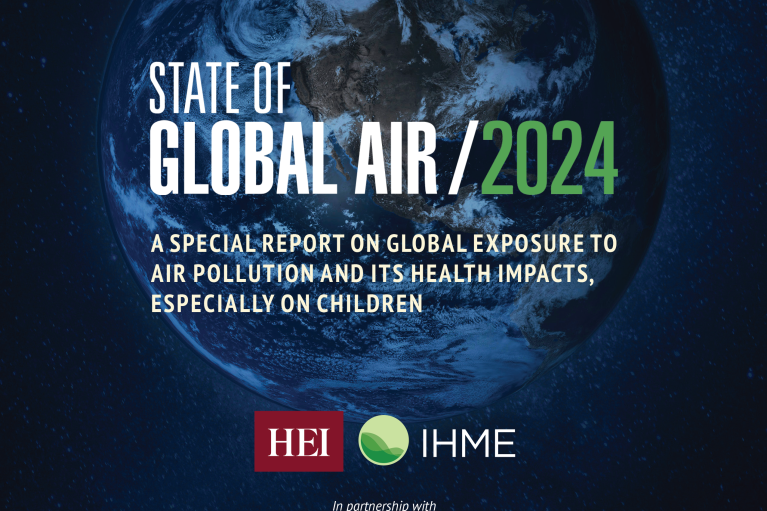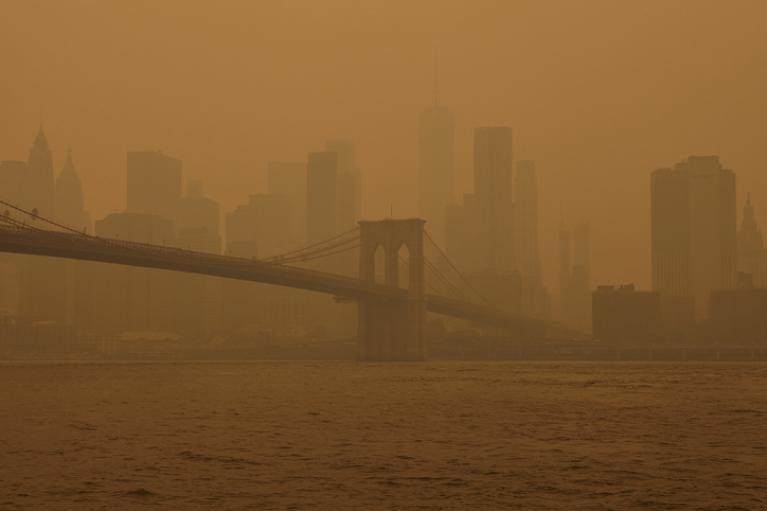
While endeavoring to expand availability of data on air quality and health, East African countries are also working to strengthen technical and planning capabilities in response to environmental challenges.
Successful air quality management relies on evidence-based regulatory approaches backed by enforcement capacity. Where air pollution data and enforcement capacity are lacking, public engagement in policy formulation may be more effective in reducing population exposure to hazardous levels of pollution. To address competing priorities such as economic growth, infrastructure development, food security, air quality improvement programs need to be included with climate and energy measures, urban planning, and agricultural policy.
The Health Effects Institute’s Global Health Initiative recently hosted a four-part webinar series that brought together a panel of researchers and practitioners from across Africa with a common goal: identifying opportunities for expanding the reach and capability of East African air pollution programs. The conversations covered a wide range of topics — including a focus on international and multicity collaborations between researchers, nonprofits, community activists, and policymakers — to address existing research and data gaps. Below, we highlight key messages from the last two webinars, which focused on expanding public engagement and communication on air pollution and health and exploring opportunities for promoting integrated action on air pollution, energy, and climate.
A Recipe for Effective Science Communications
With the increasing demand for air quality data across Africa, effective communications to the public on the topic can help build support for policy measures. Targeted information can also empower communities, especially those most vulnerable to air pollution, to manage health risks in response to environmental hazards.
To make progress on air pollution, to enhance public trust, and to help society shape policies that are grounded in evidence-based research, public engagement must be encouraged and supported. In the webinars, experts highlighted the need to work closely with community leaders and champions, who are more likely to be trusted and can help generate public demand for change. The City of Lagos, for instance, has experienced success in public awareness campaigns on improved waste management practices. Public health officers in Lagos act as liaisons with the public, presenting proposed measures in a balanced and informative manner.
The media also play a key role in shaping public perceptions on air pollution. However, difficulties in accessing air quality information and air quality experts were identified as barriers to effective air pollution reporting. This needs to be a two-way collaboration – where journalists work to accurately communicate research findings, while scientists strive to use language that is more accessible to a general audience. This includes minimizing the use of technical jargon and instead using analogies to relate research findings to people’s everyday experiences. Experts emphasized the importance of tailoring messages to specific audiences and use of data visualization, appealing illustrations, and infographics to make air pollution data more understandable and accessible.

Chairs and speakers from Webinar 3: Expanding public engagement and communication on air pollution and health. Hosted on November 29, 2023.
Shared Solutions for Promoting Climate and Clean Air Action
Over the past few decades, the conversation around air pollution has moved from something viewed as a social and environmental problem to being viewed as an economic and public health concern. Air pollution is often quoted as being the world’s single largest environmental health risk. While the numbers are alarming – 1.1 million deaths annually in Africa – integrated air pollution and climate action have dual benefits and are key to the continent’s development trajectory.
Investing in solutions that address climate change and air pollution together offers an opportunity for sustainable development while improving food security and reducing mortality from exposure to harmful air pollutants. One such solution with a potential for significant climate, air quality, and health benefits is expanding access to clean energy for households across the continent. Initiatives such as the Africa Enterprise Challenge Fund are investing in innovative local enterprises across East Africa that expand clean energy access and reduce greenhouse gas emissions.
One successful business model that has benefitted from this investment is KOKO Networks, which uses sustainable bioethanol stoves to provide clean cooking access to more than one million households in Kenya. This has resulted in an uptake of renewable fuel use, improved farmer incomes, and reduced household exposure to air pollutants.
From a research perspective, the complex interactions between climate change and air quality and their impacts on health are still being researched. This can limit decision-making regarding available solutions, their effectiveness, and applicability. There is limited research on climate and health across East Africa. However, research programs such as Climate, Heat, and Maternal and Neonatal Health Africa are investigating the interplay between extreme heat and indoor air pollution and impacts on maternal and newborn health in rural Kenya.

Chairs and speakers from Webinar 4: Opportunities for promoting integrated action on air pollution, energy, and climate in East Africa. Hosted on January 31, 2024.
The webinar series provided a platform to identify opportunities and key challenges that limit progress toward achieving clean air. Key considerations to overcome these challenges in East Africa include
1. enhancing air quality monitoring to provide reliable data for research, public awareness, and decision-making,
2. strengthening technical capacity for locally led studies that address policy-relevant questions,
3. expanding public engagement and communication to increase knowledge among interested parties, and
4. implementation of integrated pollution control strategies that respond to development objectives.
The collaborative opportunities identified throughout the webinar discussions are building blocks to accelerate progress toward achieving clean air across sectors and disciplines and promote collective action among the private sector, researchers, nonprofits, community activists, and policymakers.
This is the second of two blog posts on key messages from the HEI East Africa Air Pollution and Health Webinar Series. The first blog post, ”From the Experts: Leveraging Collaborations to Address the Air Pollution Problem in East Africa,” summarizes key messages from the first two webinars in the series.
Webinar slides and recordings are available on the HEI website. We would like to thank our cohosts, C40 Cities, for providing input and shaping the agenda for these webinars. We would also like to thank AirQo for their support in dissemination of workshop materials.


